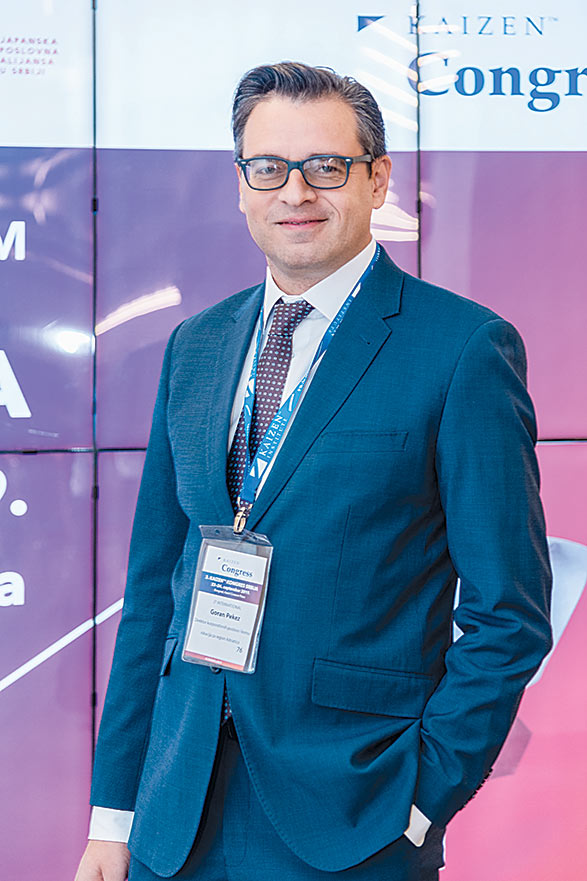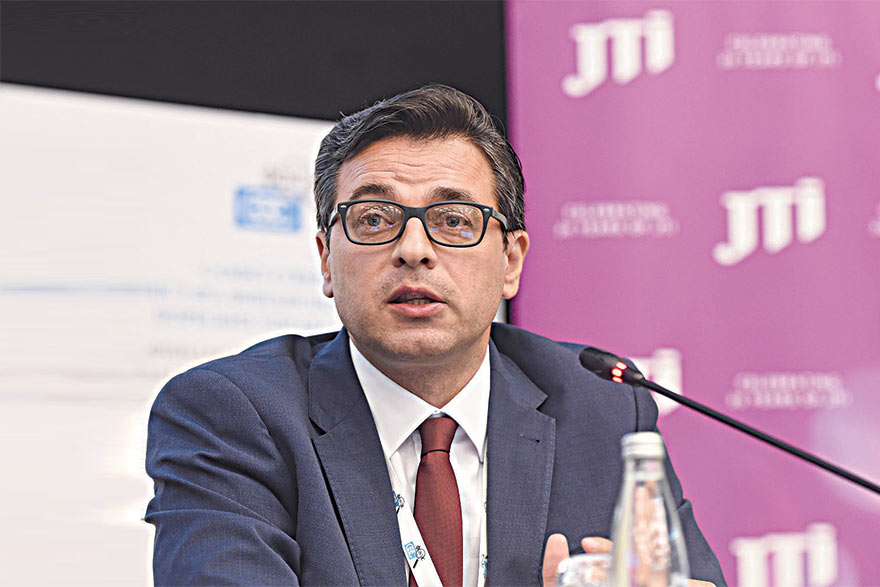Now that high-scale investments in production centres – such as those of Panasonic, Japan Tobacco, Yazaki and recently Toyo – are coming to Serbia, these Japanese companies that were pioneers on the market are ready to share their experiences. And JBAS is their home
Any company in the world that has a notable Japanese partner is truly graced with an opportunity to learn and develop over the long term, says Goran Pekez, President of JBAS and Corporate Affairs & Communication Director at JTI Western Balkans, speaking with conviction. It wasn’t so long ago that Japanese investments were so rare that the aforementioned wisdom would have been difficult to test. Now, however, when the number of Japanese companies in Serbia is slowly increasing, Serbia is in a position, both as a society and within the domestic business community, to gain more experience with Japanese investments and business philosophy. This is why we spoke with JBAS President Pekez about the changes that have occurred since JBAS was established.
How has JBAS evolved with the growing number of Japan businesses coming to Serbia?
– In the early days of this century, the Japanese business community in Serbia was a small club of senior managers leading a handful of companies’ representative offices. This was actually the first stage of creating our alliance, then called the Japanese Business Club. However, with the arrival of high-scale investments in production centres (such as those of Panasonic, Japan Tobacco, Yazaki and recently Toyo Tires), a need appeared to establish a proper business association to represent Japanese business interests and support the arrival of new investors. The latter were obviously interested in the experiences of Japanese investment pioneers and those positive stories helped Japanese investors overcome images of instability from Serbia’s distant past. I am glad to say that the accelerating of investor arrivals testifies to how good a job was done jointly by JBAS, the Embassy of Japan and the Government of Serbia, as our dedicated partner.
The accelerating of Japanese investor arrivals testifies to how good a job was done jointly by JBAS, the Embassy of Japan and the Government of Serbia, as our dedicated partner
What do you see as the most pressing tasks during your second term at the helm of JBAS?
– I believe that Serbia’s regulatory reforms are key, not only for the country’s advancement towards EU standards but also for existing and future Japanese investors. The pace of regulatory change often speeds up after long periods of debate, and helping the Serbian Government find business-friendly solutions is our key task in helping existing and future members. On the other side, we are focused on adding more value to our existing members through services that mean the most – from networking and education to always-interesting promotions of Japanese culture and – this year – the 2020 Olympic Games in Tokyo.
How does the Japanese business philosophy shape the way the Japanese Business Alliance operates in Serbia?
 – JBAS takes a pragmatic, long-term view of all issues, addressing the interests of our members or partnering with Serbian institutions. We tend not to be most exposed in media appearances but rather focused on specific projects and issues that we resolve with the highest standards of expertise and social responsibility.
– JBAS takes a pragmatic, long-term view of all issues, addressing the interests of our members or partnering with Serbian institutions. We tend not to be most exposed in media appearances but rather focused on specific projects and issues that we resolve with the highest standards of expertise and social responsibility.
We also never expected immediate dramatic decisions and changes, as we are rather focused on small, gradual improvements that – like in the case of the Kaizen philosophy – result in long-term improvements to the operating environment in Serbia. We have built such an image of JBAS, and our partners in all sectors recognise the value and dedication it brings for them.
Serbia is deliberating ways to encourage growth, which has been quite subdued in previous years. What would be the recipe of JBAS and your own business experience when it comes to achieving faster growth in Serbia?
– Continuing reform of the regulatory environment, education system and international trade will remain key drivers of growth. For example, we note the great attention devoted to the education system lately, which is encouraging, given that new types of roles and services are increasingly required from any workforce in the world. On the one hand, dual education may improve the quality of the workforce in production operations, but the reform of university education may be welcomed in providing new profiles for advanced industries, such as IT, engineering, technical sciences and managers with an international capacity. These labour segments will be generators of future economic growth for all economies, and investors will also seek them in Serbia.
If you were asked to articulate the insights of the Japanese business community in Serbia, how would you describe the pros and cons of investing in our country?
– Definite pros that we hear are close proximity to the EU and a favourable geographical location generally, Serbia’s free trade agreements and preferential trade regimes and the wide availability of skilled English-speaking workers. On the other side, cons sometimes include the unpredictability of regulatory and taxation changes (especially if they cannot be directly benchmarked to EU standards).
We are focused on adding more value to our existing members through services that mean the most – from networking and education, to always-interesting promotions of Japanese culture and – this year – the 2020 Olympic Games in Tokyo
We are also seeing certain obstacles in foreign-exchange regulations, where Japanese companies are seeking more opportunity to use their own banking and financing tools – again more common to EU operating standards. We believe that Serbia will continue heading in the right direction and adapting to international standards, which will further stimulate the arrival of Japanese investors.
Considering that you over the Western Balkan and that the region is looking for to unify at least some of its policies, how do you see the potential of the so-called mini-Schengen zone?
– JBAS will always welcome any liberalisation of trade, labour movements and travel, as these resemble EU standards and prepare the region for accession. However, we would like to see other existing trade mechanisms also sustained, such as CEFTA and EU Stabilisation & Association Agreements. We strongly believe that the countries of both the Western Balkans and the EU will continue their dedication to opening new chapters in this process.
What are the main characteristics of Japanese business principles and how can understanding them to contribute to more successful cooperation with the Japanese business community?
 – Japanese companies typically take a very careful look into a potential investment or business agreement, which takes time and a detail-orientated approach. However, once they reach a decision, they are very dedicated investors and business partners who are interested in steadily growing their business but also maintaining the high quality of products and operating standards. I would say that any company in the world that has a notable Japanese partner is truly graced with an opportunity to learn and develop in the long term.
– Japanese companies typically take a very careful look into a potential investment or business agreement, which takes time and a detail-orientated approach. However, once they reach a decision, they are very dedicated investors and business partners who are interested in steadily growing their business but also maintaining the high quality of products and operating standards. I would say that any company in the world that has a notable Japanese partner is truly graced with an opportunity to learn and develop in the long term.
What can Serbian business learn from the Japanese way of doing business – can Kaizen be the key to increasing business efficiency?
– By all means, yes; we had hundreds of local and international companies participating in activities promoting Kaizen and lean management over the past two years, and the interest continues.
Companies would not look into it unless they share the view that it improves companies’ value, efficiency and the quality of operations in Serbia. The most important angle of this approach is that it brings employees’ engagement and requires little or no investment. Hence, every manager is interested in better motivating employees to improve their company’s operations and returns on investments.